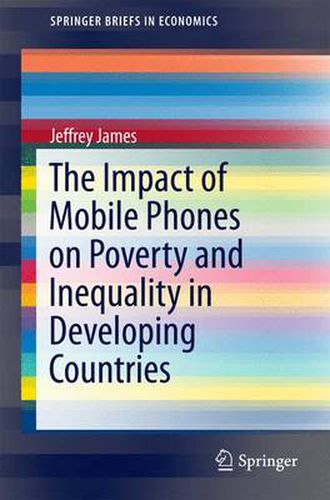Readings Newsletter
Become a Readings Member to make your shopping experience even easier.
Sign in or sign up for free!
You’re not far away from qualifying for FREE standard shipping within Australia
You’ve qualified for FREE standard shipping within Australia
The cart is loading…






This title is printed to order. This book may have been self-published. If so, we cannot guarantee the quality of the content. In the main most books will have gone through the editing process however some may not. We therefore suggest that you be aware of this before ordering this book. If in doubt check either the author or publisher’s details as we are unable to accept any returns unless they are faulty. Please contact us if you have any questions.
This book investigates at both the micro- and macroeconomic levels the impact of mobile phones on poverty and inequality in developing countries. To gauge the effects of mobile phones on these aspects, the author refers to the standard concept of technology adoption and also analyses the actual utilization of mobile phones as a means of communication and the degree to which they have supplanted fixed-line phones. Readers will learn why the substitution effect is stronger among poor than rich users and why the benefits of some mobile phone projects are confined to the local or village level, while in other projects the gains can be felt throughout the economy as a whole.
$9.00 standard shipping within Australia
FREE standard shipping within Australia for orders over $100.00
Express & International shipping calculated at checkout
This title is printed to order. This book may have been self-published. If so, we cannot guarantee the quality of the content. In the main most books will have gone through the editing process however some may not. We therefore suggest that you be aware of this before ordering this book. If in doubt check either the author or publisher’s details as we are unable to accept any returns unless they are faulty. Please contact us if you have any questions.
This book investigates at both the micro- and macroeconomic levels the impact of mobile phones on poverty and inequality in developing countries. To gauge the effects of mobile phones on these aspects, the author refers to the standard concept of technology adoption and also analyses the actual utilization of mobile phones as a means of communication and the degree to which they have supplanted fixed-line phones. Readers will learn why the substitution effect is stronger among poor than rich users and why the benefits of some mobile phone projects are confined to the local or village level, while in other projects the gains can be felt throughout the economy as a whole.